Frank T. Fowler


Biographical Information
The information presented here is composed of newspaper clippings, magazine articles, and reference materials collected to gain a better understanding of this man’s life. The research is ongoing, and will be updated as more is found.
After all, there is no university like that of the everyday world, provided that the student has the courage, the ambition and the aptitude to avail himself, as Mr. Fowler has done, of its vast and varied, through diftlculty attained, resources. came to Chicago when he was but 18 years of age, and with less than $5 in his pocket, or in all his pockets. He lost no time in useless search for "something easy," but at once entered the employ of the Crane Elevator Company, and afterward that of the Eaton & Prince Elevator Company. While thus engaged he was saving his money, adding to his stock of general information, and watching his chances. They came with the advent of the bicycle. Mr. Fowler was one of the first to foresee the great utility and universal popularity of this new mode of locomotion. He became interested in the manufacture of bicycles in 1890-91, and was the maker of the first light wheel introduced in the United States. The name of the "Fowler" grew famous the world over for the highest-class bicycle, and from a small business employing some twenty men. In 1896 he sold out for a large amount the concern that had grown to some 600 employes, with branches in all parts of the world. He went East shortly afterward and started the Trinity Cycle Manufacturing Company at Worcester, Massachusetts, but, having a natural liking for the "breezy," hustling, Western ways, sold out and returned to Chicago in time to repurchase the Fowler Company, which had not made a success during his absence.
The Fowler Cycle Works, of which he is now president and treasurer, does an immense business, and the magnitude of their operations made it a peculiar object
of desire to the Bicycle Trust, which offered large sums for its purchase. Mr. Fowler, however, preferred an independent course of action, and, by his influence, the purpose of the trust was baffled, and the Fowler Cycle Works remains at the head of the anti-trust firms.
In politics Mr. Fowler has been always and actively Republican since his attainment of years of discretion. His counsel has been sought after and highly appreciated by the voters of his neighborhood. In 1899, without his solicitation, and almost without his knowledge, he was nominated by his Republican friends as alderman from the Thirteenth Ward, and was elected by a majority of I,600, although his Democratic predecessor had carried the ward by a plurality of 2,000.
In 1899 he was apponted by Governor Tanner to the honorable and arduous, though unpaid, office of West Park commissioner. Mr. Fowler's business and political career is finely indicative of the possibilities that await the "man of action," whose actions are guided by prudence and by an intellect that is always in pursuit of useful knowledge.
Mr. Fowler is a Mason of the 32d degree, a Mystic Shriner, a member of the Illinois Club, of the Chicago Driving Club, of the West Side Driving Association. He is married to Minnie E., daughter of Mark W. and Caroline D. Hill. Two children, Edith Hill Fowler and Frank T. Fowler, Jr., contribute to the happiness of their home.”
History of the City of Chicago; Its Men and Institutions; 1900
(1897)
“Mr. Frank T. Fowler, although one of Chicago's young men, has attained a reputation and fame which many an older one may well envy. He was born at Beverly, Ohio, in 1866. He early displayed a love of mechanics and an aptitude for invention. He came to Chicago at twenty years of age and accepted the first situation that offered, although it paid only $4.50 per week. He afterward obtained a situation with The Crane Elevator Company, where he remained for three years, eventually abandoning it to engage in the manufacture of bicycles. Here his natural genius for invention was turned to good account. His truss frame has become famous throughout the world. The Fowler wheel is a marvel of strength and beauty. Its success has been second to none in the market. The sextuplet wheel, built by the Fowler Manufacturing Company, is a complete demonstration of the superiority of the Fowler truss frame over all others.”
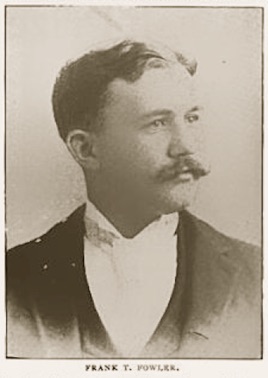
(1892)
“Frank T. Fowler, general manager of the Hill Mfg. Co., Chicago, some time ago thought that he could make an ideal bicycle. He thought and thought and pored over musty patents and finally brought forth a wheel, which contains many fine points. It is called the Fowler and will be manufactured by the Hill Cycle Mfg. Co. The firm is proud of the new wheel and well they can afford to be, for it is a thing of beauty and a joy forever. The Hill company is determined that no fault shall be found in the new wheel. The firm employs a large force of workmen and arrangements have been made to work extra night gangs when the necessity arises.
Under no circumstance will a Fowler be passed by the inspecting department until it has been subjected to a most careful examination, and any wheel showing the slightest flaw will be returned to the workshop. The company feels that by placing wheels, which are without a single defect, on the market that they will obtain the confidence of the cycling world. Attention is called to the ad. of the new wheel.
General Manager Fowler has made many friends by his well known courtesy. He is a hard worker and as a business man has few superiors. He is a self-made man. He came from Beverly, O., seven years ago and by hard work attained the position he now holds. Mr Fowler is quite prominent in West Side society circles and is a well known member of the Ashland Club.”
Bearings; The Cycle Authority of America, Chicago; Trade Supplement, Friday, November 11, 1892.
(1911)
“FOWLER, Frank Thomas, mfr. and publisher; born Beverly, O., Feb. 7, 1867; son Royal A. and Mary J. (White) Fowler; ed. common school; married Minnie F. Hill of Chicago, Nov. 29, 1889; 2 children: Edith H. and Frank Thomas, Jr. Began with Crane Elevator Co. and later was with Eaton & Prince Elevator Co., until 1891; engaged in bicycle mfg. business, mfg. the “Fowler” bicycle, 1891-6; was owner and publisher Waukegan Daily Sun, and now publisher Improvement Club News. Mem. West Chicago Park Board, 1899; alderman from (old) 13th Ward, 1899-1901; from (present) 14th Ward, 1901-3; men. Board of Local Improvements, and supt. of streets of Chicago 1909-10. Has paid especial attention to steer paving and repairing and is recognized as paint and paving material expert; was instrumental in amending state assessment laws. Republican in national, independent in local politics. Congregationalist. Mason (32*, Shriner). Kp., Modern Woodmen of America, Royal Arcanum, Royal League. Residence: 915 Lakeside Pl. Office: Stock Exchange Bldg.”
The Book of Chicagoans, A Biographical Dictionary of Leading Living Men of the City of Chicago, 1911
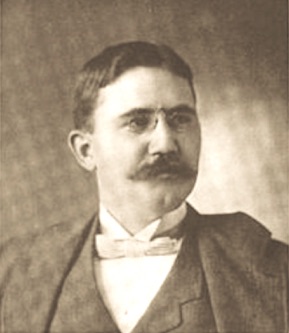
(1900)
“Frank Thomas Fowler, who has achieved both commercial and political distinction while still in the prime of early manhood was born at Beverly, Washington County, Ohio, February 7, 1867, the son of Royal Arch Fowler and Mary, his wife, formerly Miss Mary J. White.
Mr. Fowler owes but little to academic discipline, his scholastic education having been limited by the curriculum of the common schools, or, rather, to that part of it which is open to boys of twelve years of age. Nevertheless, Mr. Fowler not only is a shrewd and successful man of business, but also is a well-informed politician, who makes a good impression as a public speaker, and, furthermore, he has proved himself to be a capable contributor of important articles to the daily press.

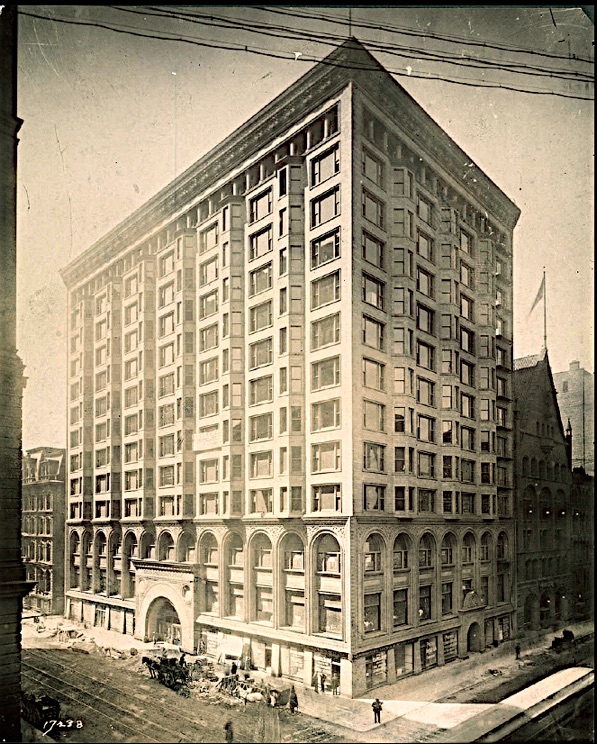
The former residence of Frank Fowler is still with us...
...but the Chicago Stock Exchange building is not.
Designed by Louis Sullivan in 1893, it was torn down in 1972 during the redevelopment frenzy of the ‘60s and ‘70s - an activity that completely obliterated many historic properties, not only in Chicago, but lots of other cities as well (including Denver).
In 2013, the main entrance arch of the Chicago Stock Exchange building is a beautiful piece of public art. Through the efforts of concerned citizens, and in particular photographer Richard Nickel, this entrance was salvaged, along with portions of the original trading room which were brought to the Art Institute and reconstructed.
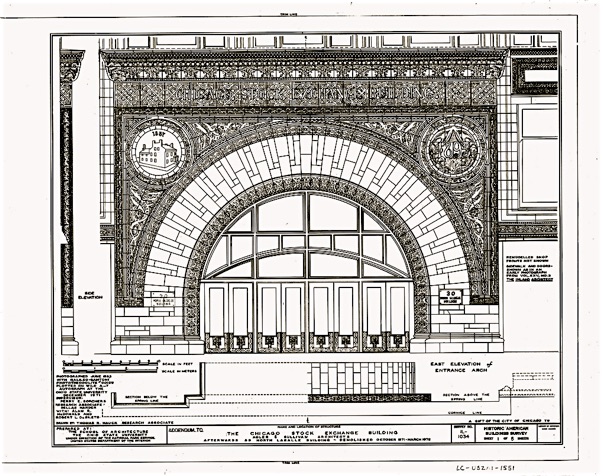
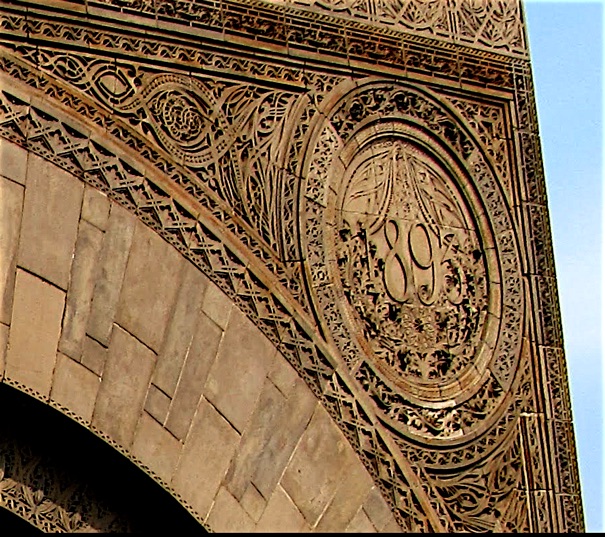
Frank T. Fowler - later life
There seems to be very little information available about Mr. Fowler after his bicycle business days. After persistent searching, the few items found so far indicate he was involved with the operation of at least two newspapers located in Waukegan Illinois, and that he also owned some land in the same area.
-
•On December 7, 1902, his opinion on a subsidy issue as Editor of the Waukegan Sun was reported in the Chicago Daily Tribune. (TRUST BAR TO SUBSIDY)
-
•On November 3, 1905, the Trenton Sun in an article on a Supreme Court decision regarding hunting and fishing rights on small lakes in the Waukegan area, quoted the opinion of Frank T. Fowler as an owner of 900 acres of lakeside property. (BOOM FOR INLAND LAKES LAND)
-
•Frank T. Fowler was listed as an executive committee member for the Association for Standardizing Paving Specifications in their February 1913 meeting report.
-
•On December 23, 1939, the Chicago Daily Tribune reported a legal issue involving Frank T. Fowler, editor of the Waukegan Post, and his son Frank T. Fowler Jr. (ARREST FORMER WAUKEGAN MAN)
-
•On February 16, 1941, the Chicago Daily Tribune reported on a legal issue involving Frank T. Fowler, “former Chicago alderman who resigned last month as secretary and treasurer of the [Waukegan] Post.” Also mentioned were his son, Frank T. Fowler, Jr., and his daughter-in-law, Marie. The Waukegan Post was cited as having a inception date of September, 1939. (SUBPNA BOOKS OF WAUKEGAN POST IN DISPUTE)
-
•The most recently dated citation indicating he was still kicking is from the Chicago Daily Tribune, August 21,1945, At that date, he would have been 79 years of age. (WILLS A PENNY OF $388,667 AS ‘APPRECIATION’)
No further information nor obituary information has been discovered as yet.
May 3, 1946?
Click for VIDEOS:



Image from New York Daily Tribune, Saturday, January 25, 1886










